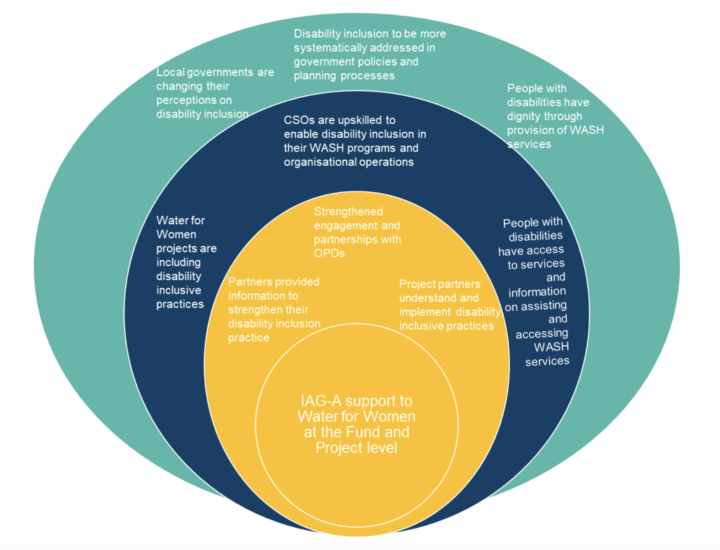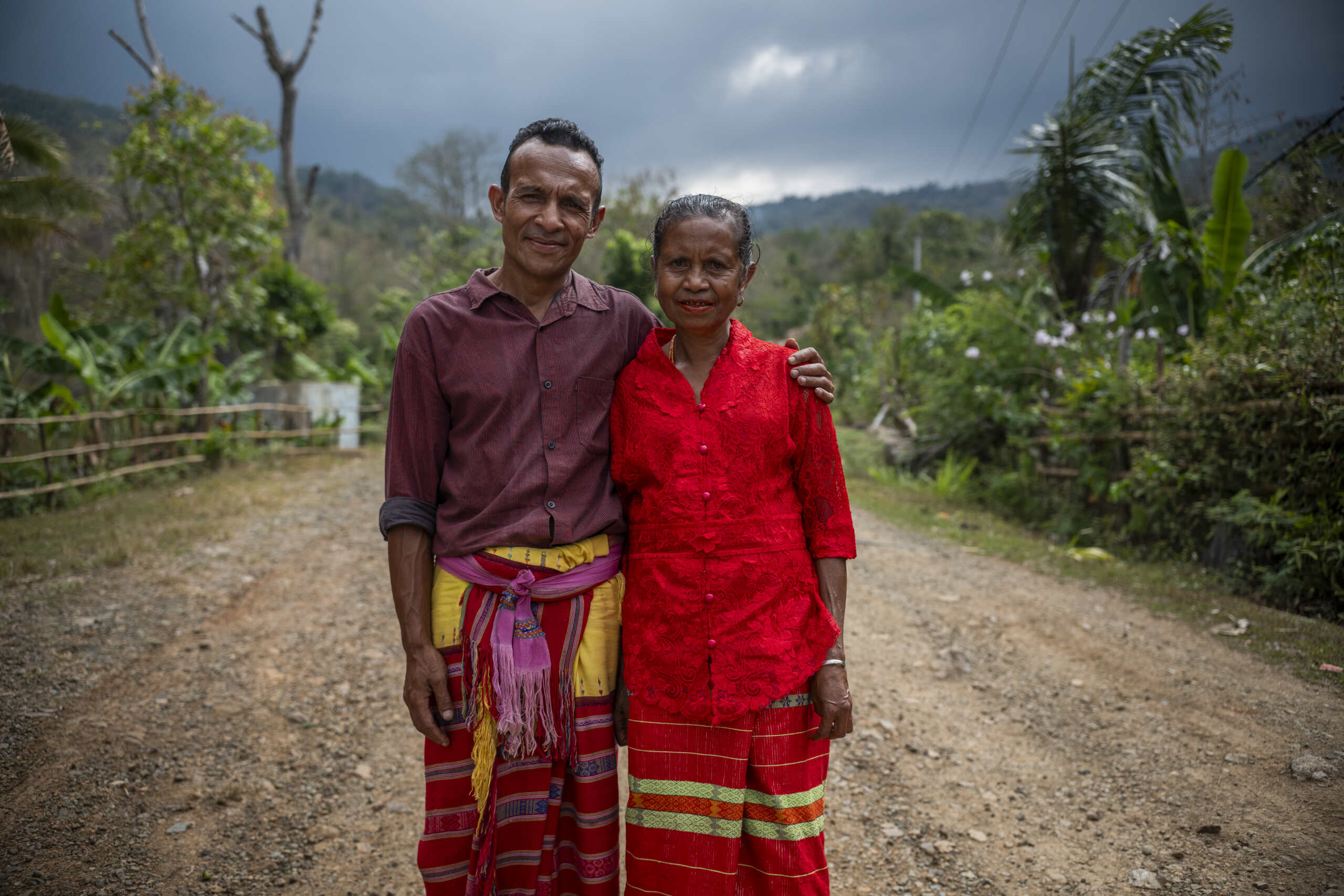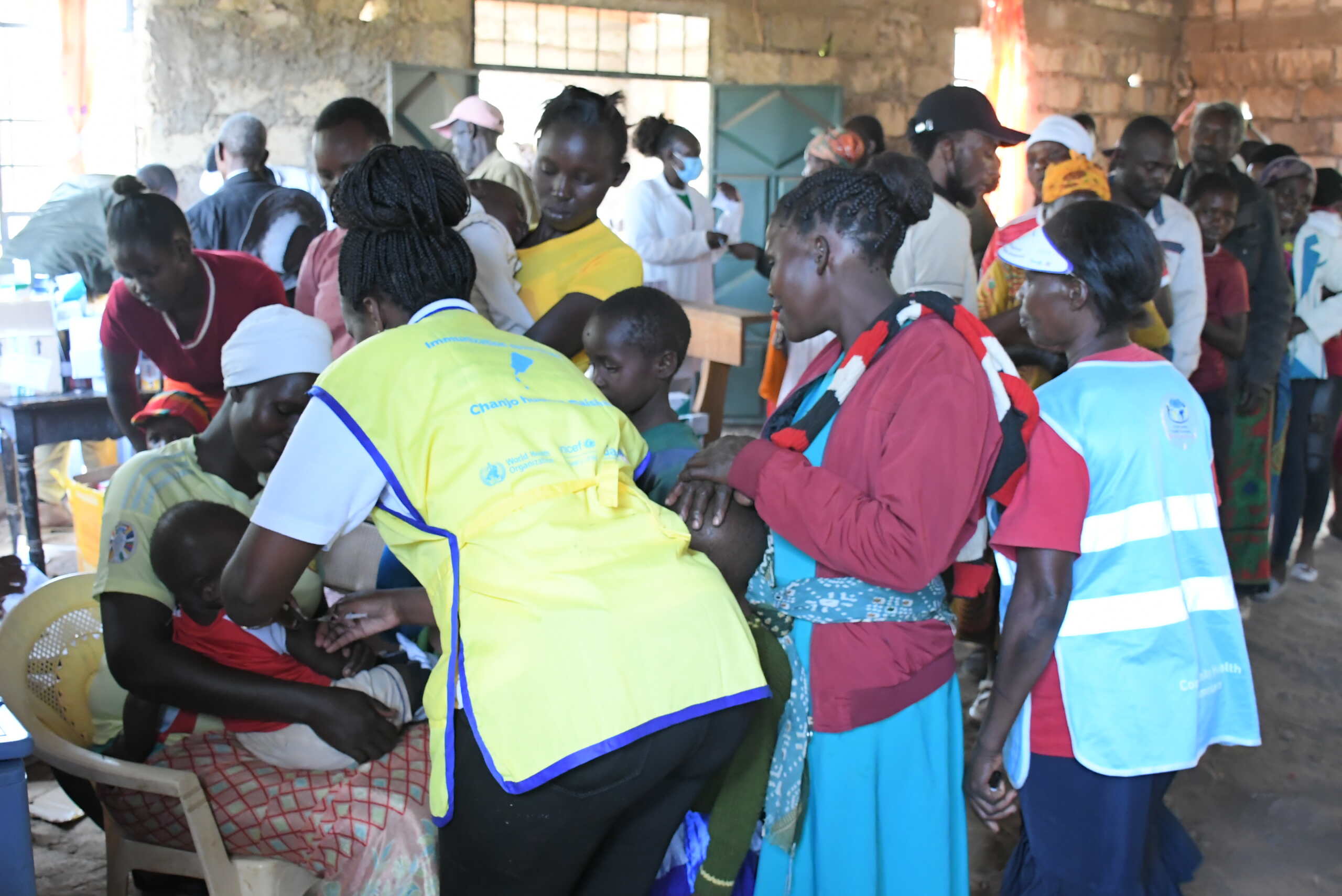Supporting Water for Women to prioritise the needs of people with disabilities
Background
CBM Global’s Inclusion Advisory Group (IAG) Australia team supports Water for Women Fund to improve health, equality, and wellbeing in Asian and Pacific communities through socially inclusive and sustainable WASH projects and research in 16 countries.
“The IAG provides valuable technical support and input to the fund as a whole and at the project level.”
Water for Women is Australia’s flagship water, sanitation, and hygiene (WASH) program. It has a Fund Partnership Group, which in the extension period (2023-24) is made up of eight Civil Society Organisations (CSOs) and four research organisations, along with the Department of Foreign Affairs and Trade (DFAT) and the Fund Coordinator and managing contractor, GHD, to deliver seven research projects across 10 countries in the Asia-Pacific region. From 2018-2022, Water for Women partnered with 10 CSOs and five research organisations for the implementation of 13 research projects across the region.
Four organisations commissioned IAG separately to provide disability inclusive development advice to their projects: SNV, WaterAid Australia, World Vision Australia, and UTS Institute for Sustainable Futures.

About the program
From 2018 to 2024, Water for Women has committed to deliver 20 WASH projects in South Asia, South-East Asia and the Pacific. These projects support more than 3.4 million people, including people with disabilities, within these communities.
People with disabilities often face additional barriers to accessing WASH services and development processes and can be unintentionally overlooked in WASH efforts.
The role of IAG is to support projects to identify barriers to people with disabilities and implement enabling strategies for disability inclusion in their WASH programs and organisation operations.
IAG’s work can be defined in two categories.
Fund level
At the Fund level, IAG provides partners with the information they need to then strengthen their practice. By raising awareness of what is being done well, what isn’t being done so well, and what next steps should be, the achievements and changes occur from the ground-up in a more tangible manner.
The work at this level includes:
- Contributing to the development of the Gender and Social Inclusion (GESI) strategy and GSI Self-Assessment Tool
- Advising the Fund Coordinator team and Fund partners about best practice in disability measurement and monitoring
- Writing external learning briefs that discuss the disability work and learning from across the Fund
- Annual syntheses of annual reports on disability inclusion projects submitted to the Fund and presenting the analysis with recommendations in workshops with the Fund Coordinator team and Fund Partners
- Facilitating disability-focused M&E workshops for the partners
- Facilitating a disability-focused Community of Practice (CoP), including regular workshops on key disability inclusive WASH themes
- Being a sounding board on disability for the Fund Coordinator team
- Providing technical inputs into key initiatives of the Fund’s learning agenda
“The consultant from IAG has been instrumental in delivering [a disability focused Community of Practice] … they bring a lot of expertise in guiding our thinking around disability inclusion, and their first-class facilitation skills brings an open conversation.”
Project level
At the project level, IAG takes a capacity-building role which includes providing training, technical advice, and mentoring for project staff to support them to put inclusion into practice. IAGs more intimate engagement with projects was key for the project teams at an individual and organisational level to enhance understanding of and their practices for disability inclusive WASH.
The work at this level includes:
- Mentoring GEDSI officers
- Providing advice on disability inclusion at each stage of the project cycle
- Supporting research on disability and WASH
- Reviewing design documents and M&E frameworks for disability inclusion
More information
- Water for Women Fund website
- Gender and Social Inclusion – Water for Women Fund
- Disability inclusion and COVID-19: Guidance for WASH delivery
- Disability-inclusive WASH: Practice within Water for Women – Water for Women Fund
- Towards Transformation: Shifting Social Norms for Transformative WASH – Water for Women Fund
- GESI Self-Assessment Tool (SAT)
https://www.cbm.org.au/stories/supporting-water-for-women-to-prioritise-the-needs-of-people-with-disabilities
Related Stories

How CBM is making a difference in Indonesia
For more than 45 years, CBM Global has been working alongside communities in Indonesia to ensure people with disabilities...

Coordinating inclusive health outreach in Meru County
For many households in Meru’s rural and remote areas, basic health services are physically...

Share your advocacy preferences with us
Thank you for helping us to advocate for the one billion people with disability globally. CBM Australia advocate across...
